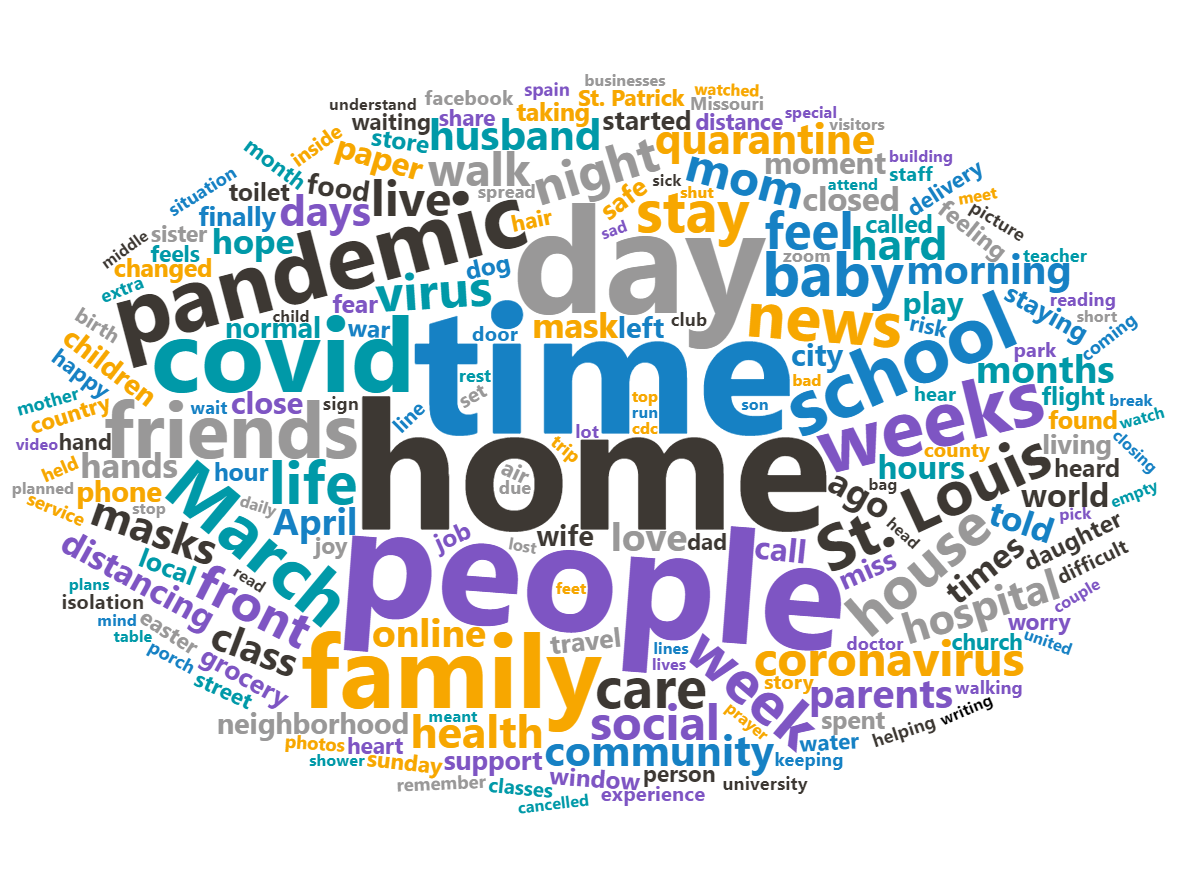Playwright John Wolbers
We asked John Wolbers, Metro Theater Company’s Producing Associate and Playwright of Early Days—Stories of the Pandemic, about collaborating with The Missouri Historical Society and the creative process.
How did you collaborate with The Missouri Historical Society on Early Days—Stories of the Pandemic?
The collaboration initially began with a request for sharing data. We’d collected stories, they’d collected stories, and so we knew there was a common goal to document this historic time. They’d been wondering how to synthesize their Digital Archive into something that could be shared safely while we’re all still navigating COVID. We were looking to tell the story of what we’re all experiencing right now. Early Days seemed like a natural fit. We pored over hundreds of stories and photographs, pieced together the story, and the Apprentices of the Teens Make History program reviewed our early drafts providing fantastic feedback.
What was particularly memorable about the experience?
My wife asked me if I was okay while reading through the submissions. Apparently she saw me laugh out loud, sigh, smile, and openly weep multiple times over the course of about five minutes. It was such an extreme emotional roller coaster or “corona coaster” if you will.
What was it like to read through the submissions and how did you decide what kinds of experiences or words to highlight?
Humbling and surreal. It was like looking into a cross-section of humanity. We’re all going through the same thing, but everyone’s responses varied so wildly depending on their own lived experiences. There were definitely some universal themes that helped us mold the story—relatable events and emotions we’re all feeling that had to be included. Then there were extraordinary stories we’re all curious about. What was it like for people who had to return home from abroad when COVID hit? What is it like for those essential workers on the front lines: medical workers, grocery store workers, etc. How are people celebrating or honoring traditions and rituals in this new reality: birthdays, weddings, funerals, and graduations. We focused on stories that resonated most to what everyone can identify with regardless of age, background, or experience. Then placed them in the framework of one family’s struggles, hopes, and triumphs. Because ultimately that’s the only way we can really process the vastness of everything that’s happened of late. Through the lens of the ones we love most.


